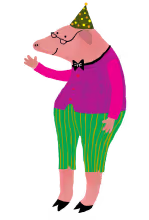
Hywel Roberts
Travelling Teacher, Writer, Humourist
‘..a world leader in enthusiasm’
Hywel has been a teacher for over twenty-five years. His reputation has grown hugely since he stepped out of the full-time classroom. He has found an incredible and innovative niche in the world of model teaching contributing to and advising curriculum designers and innovators from Barnsley to Brussels, from Cairo to Cleethorpes. Hywel is as at home in front of hundreds of Headteachers on the conference circuit as he is when working with EAL children on the carpets of their classrooms.
Hywel contributes to the national conversation around education at school and university level. He is an experienced teacher in Special, Primary and Secondary settings, nationally and internationally. He is also a well- respected author and contributes regularly to a variety of publications.
His award-winning book ‘Oops! Getting Children to Learn Accidentally’ is published by Crown House Publishing and has proved very popular with educators around the world and now is a feature on the reading list of many university teacher training courses. His book ‘Uncharted Territories’ is written with Dr Debra Kidd and was published in 2018. He writes a regular column for the Times Educational Supplement about his encounters as a ‘travelling teacher’. He has also contributed fiction to a prison-based literacy reading programme developed by The Shannon Trust.
Check out Hywel’s links to find out more.
Key takeaways:
- Hywel’s Background: Hywel, a Welsh educator, has taught in challenging secondary schools in West and South Yorkshire, worked in pupil referral units (PRUs), and now engages in primary and special education settings. He’s an author (notably *Oops* and *Uncharted Territories*), conference speaker, and advocate for child-centered, story-based learning, inspired by *Dead Poets Society* to prioritize literature and connection.
- Creativity in Crisis: Creativity in education, revitalized briefly by Sir Ken Robinson’s TED Talk 13 years ago, is often squeezed by curriculum pressures, especially in England’s high-stakes system. Teachers are left to foster creativity independently, often relying on online resources like Tales Toolkit.
- Stories as Tools: Stories are “psychologically privileged” (per cognitive scientist Daniel Willingham), embedding knowledge through emotional resonance. They bridge complex curriculum concepts, making them accessible and meaningful, especially for disengaged or disadvantaged students.
- Professional Imagination and Warmth: Teachers must maintain “imagineering” (imagination + engineering) and “botheredness” (care for students’ learning). A warm, story-based curriculum builds empathy, intellectual engagement, and connection to the real world, countering the “cool” satnav approach of rushing through content.
- Story Structure: Hywel emphasizes stories as comprising people, places, problems, and possibilities (mirroring Tales Toolkit’s approach). This structure humanizes curricula (e.g., Romans, castles, Egyptians), fosters empathy, and makes learning relevant, avoiding dull, fact-heavy delivery.
- Classroom Stance and Agility: Effective teaching requires shifting from a rigid, front-of-class stance to a collaborative one, standing alongside children, fostering dialogue, and adapting to their responses. This agility, rooted in warmth, is natural in early years but often lost with older students.
- Violence in Stories: When a child suggested guns in a story, Hywel redirected to school values (kindness), gently shaping the narrative. Tales Toolkit similarly accepts all contributions, exploring even violent ideas to foster creativity safely.
- Difficult Headteachers: Navigating restrictive leadership is tough. Hywel suggests focusing on results from story-based methods, as supportive heads often invite such approaches. Teachers may need to quietly assert their pedagogy, leveraging professional wisdom.
- Hywel’s Future Work: He’s writing fiction for adult literacy learners in prisons, addressing literacy-crime links, and working on another educational book. He continues writing stories for TES and engaging schools with narrative-driven curricula.
- Closing: Kate and Hywel emphasize the power of stories to foster engagement, humor, and warmth. They thank attendees, noting the end-of-term context, and encourage relaxation. Hywel humorously mentions needing to tend to his cat, Basil, reinforcing the webinar’s warm tone.
Related Webinars

We'd love your feedback!
Did you love it or hate it? And what ideas have you got for upcoming webinars - big names you'd love to see or topics you'd like covered?

.avif)









